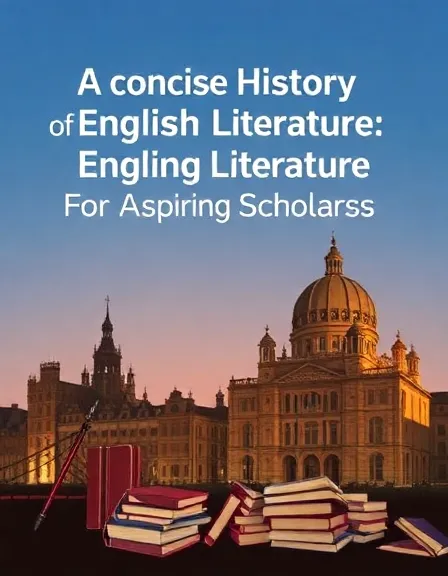Gaurav Kumar
Biography
Aspiring Author
Reviews Summary
3.0
Rating Breakdown
3 total ratings
Aspiring Author
3.0
Rating Breakdown
3 total ratings
This first chapter really drew me in with its clear explanation of early English literature. I appreciated how the author broke down the Anglo-Saxon period and the impact of the Norman Conquest. The mention of Chaucer felt like a great stepping stone to more complex literary periods. I'm definitely interested in reading the rest to see how it covers later eras. The writing is quite accessible, making a potentially dense topic feel manageable. It seems like a solid foundation for anyone wanting to understand English literature's evolution. This preview makes me think it's worth upgrading to read the complete version. I’m curious to see how the book continues to simplify the complexities of literary history. It feels like a helpful guide for students aiming for academic success. I’m eager to dive deeper into the subsequent literary movements discussed.
This initial chapter of A Concise History of English Literature for Aspiring Scholars provides a solid foundation. The overview of the Anglo-Saxon period and the impact of the Norman Conquest was particularly informative. I found the explanation of Chaucer's role quite clear, though I wish it had delved a bit deeper into specific works. The writing style is academic but accessible, making complex historical shifts easy to follow. It left me curious about how the author will approach later literary periods and their key figures. I am interested in reading the rest to see if it maintains this informative pace. The author's attempt to simplify intricate literary history is commendable. It feels like a good starting point for someone new to the subject. Worth upgrading to read the complete version to gauge the overall depth. Can't wait to see where this history goes next.
This first chapter offered a solid, if a bit dry, introduction to Anglo-Saxon literature. The discussion of the Norman Conquest's linguistic impact was particularly interesting to me. Chaucer's inclusion felt a little abrupt, and I wished for more depth there. The writing style is very academic, which is expected, but could use a bit more narrative flair. While the information is valuable, it didn't quite spark a burning desire for more. I'm interested to see if the subsequent chapters become more engaging. This chapter provides a good foundation, but I'm not yet convinced to invest in the full version. It's a serviceable start for those needing a straightforward overview of this period. I'm not sure this preview makes me want to eagerly devour the rest of the book just yet. It lays out the historical context clearly, but the literary analysis felt a little superficial.
